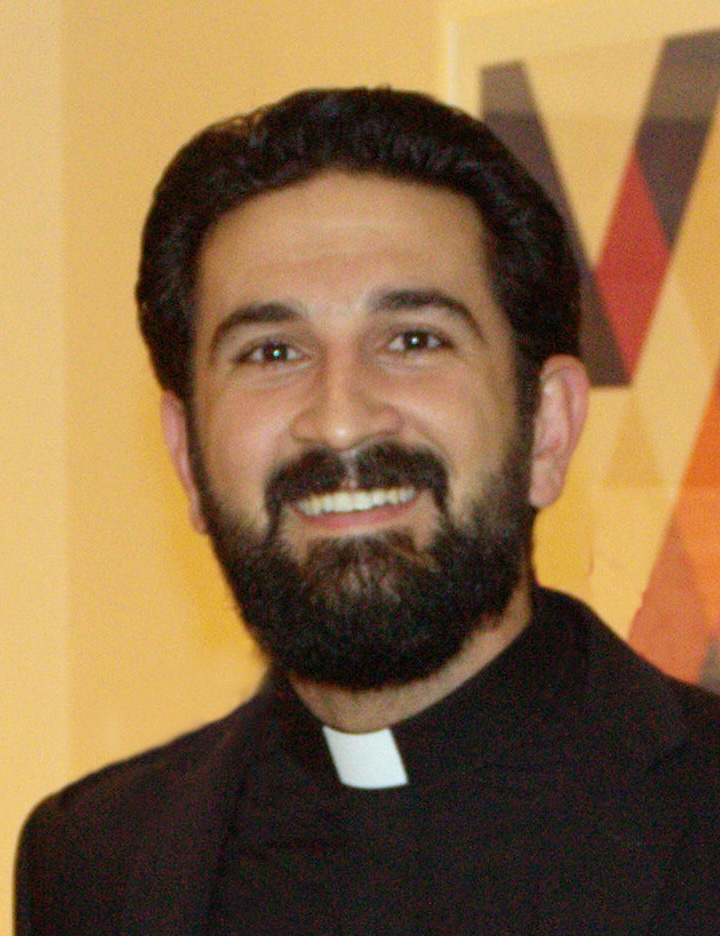- Clergy Corner
The Power of Words
by Fr. Mario Rizzo
Spring 2023
If you were to ask priests what their favorite thing about being a priest is, they would most likely tell you it is celebrating the Sacraments, most especially, celebrating Mass and Confession. Not that we get some weird satisfaction out of hearing people’s sins, but because it’s a privilege to be an instrument of healing. In Confession, I’ve seen dead people walk in and leave alive. Similarly, in the Mass, priests are charged with speaking those most sacred words, “this is my body…this is my blood,” as he leads the celebration of Jesus’ Eucharistic sacrifice. It is a blessing to be able to speak those sacred words.
I wonder how many priests would say that marriage preparation is a favorite part of priesthood. Maybe some struggle with it because the words aren’t always as clear as they are while celebrating the Sacraments. Each couple is different and has their own needs, which is why we must carefully discern what they need to hear.
Usually, most engaged couples are in a good place. They like each other, or else they wouldn’t be there. I usually don’t have to do any triage, apart from some basic communication and conflict resolution exercises. But what I usually do have to mention, which comes up when their contact information is shared and I see that they have the same address is, “do you know what the Church asks of you before marriage?” You should see the faces they make as they anticipate what comes next.
“It’s not the best term,” I tell them, “But the Church asks you to live as ‘brother and sister’, which means that, until you’re married, you refrain from doing what married couples do.” It’s not a fun conversation, but someone has to say it.
Over the course of our time together, we talk about the language of love making, or “the conjugal act,” which, I tell them, is a sacramental sign itself. This means that sex is the visible sign of an invisible reality. The act of making love with one’s spouse is a free act, not forced. It is a faithful act, not done with anyone else. It is a total act, which means nothing is held back, including one’s fertility. And because of that, it is a fruitful act. These four elements (free, total, faithful, and fruitful) are the essential elements to married love; they’re what is professed in the vows at the wedding ceremony. Thus, the physical act of making love is really a consummation and renewal of the wedding vows. Making love is an unspoken language, a body language, which is why we can’t say with our bodies what we have not said with our souls. If we attempt that we tell a lie, which is why waiting until marriage is the best, even though it is a challenge.
Once married, however, couples don’t have free reign to engage in the conjugal act however they please. It must remain fruitful for it to be total. Which is why introducing them to NFP is the critical next step. This may be why marriage prep is difficult for priests, if they even attempt it at all, because NFP is a challenge, but a worthwhile one. The marriage prep program I use (“Witness to Love”) requires an NFP course, but instead of simply directing them to an online program, I tell my couples to contact Sheila, the Executive Director of CANFP. I do this because the couples deserve it. They deserve to have someone who knows the benefits and beauty of NFP, and no one knows these like Sheila. Sheila can speak to them in a way I cannot and can put them in touch with teachers who can continue this critical conversation. Words matter, and couples deserve to hear the truth.
About The Author


